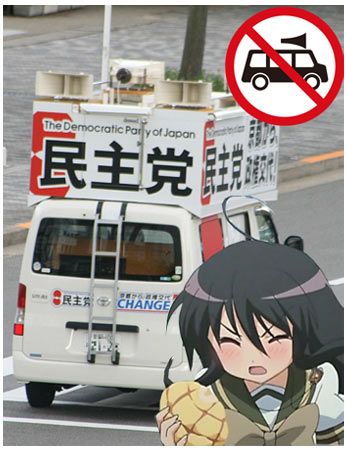If there’s a Golden Rule in Japan, it’s that you should never cause meiwaku, translatable as inconvenience or trouble, to people around you. This rule is the source of the wa or harmony that foreigners perceive about the country, which flows from millions of people going about their day in a way that generally avoids causing inconvenience to others. The big exception to this rule are Japan’s elections, which are loaded with meiwaku in the form of annoying politicians who ride around in speaker cars shouting meaningless statements like, “I am Tanaka! I will work hard for you! Please remember my name on election day!” For some reason — tradition, perhaps, or the fact that Japan’s aged politicians don’t know how to use computers — politicians are banned from using modern tools like Twitter or the Internet in general to reach voters, which is why they make loud speeches instead. Last month a British resident of Japan named Edward Jones got fed up with the noise and grabbed the microphone from a candidate, complaining to the crowd that Japanese elections are urusai (oo-roo-sigh, loud and annoying). Unfortunately for him this is a crime, and he was arrested for “interfering with the electoral process” despite winning praise from Japanese online, who hailed him as a hero.

Elections in Japan are urusai, urusai, urusai!














